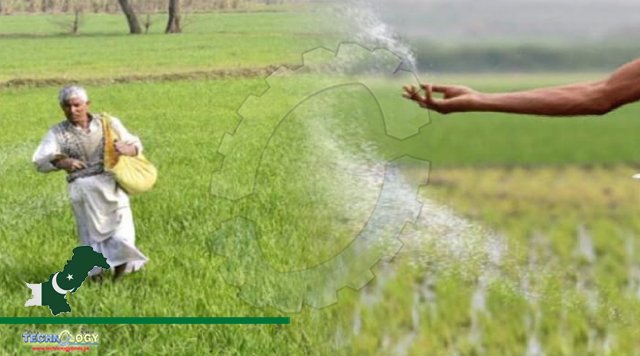The sale of fake seeds by unregistered businesses is impeding the growth of agriculture in the province, despite efforts to produce local seed.

Farmers in Sindh have expressed concern about the outrageous cost of fake seeds and how this has slowed down agriculture’s expansion and development in the province. The sale of fake seeds by unregistered businesses is impeding the growth of agriculture in the province, despite efforts to produce local seed.
Farmers are finding it difficult to purchase high-quality seeds at reasonable prices as a result of the dire situation, which is causing crop yields and regional agricultural output to decline.
This problem, along with the rising input costs, is creating significant difficulties for Sindh’s farmers, underscoring the necessity of an all-encompassing solution to stop the widespread distribution of fake seeds.
The owners and growers of some of Sindh’s largest registered cotton seed companies attended a meeting with the Karachi Cotton Brokers Forum and the Karachi Cotton Association’s Brokers Advisory Committee in connection with the revival of the cotton crop, where it was revealed that the province is being supplied with unregistered seeds that are detrimental to the agricultural ecosystem of the province.
Nadeem Shah, Chairman of the Matiari Seed Company, explained, “Sindh receives about 80% of its cotton seed from Punjab-based seed companies.
The majority of these businesses, which sell fake cotton seeds without processing and buy cotton seeds from ginning factories, are unregistered, causing cotton farmers to suffer irreparable losses.” Shah argued, “Unregistered, fake companies should be banned. We have no issues with seed companies that are registered in Punjab.
Muhammad Ali Iqbal, president of Concave Agri Services, told the media that if the authorities are not watchful, companies registered in one province, like Punjab, can manipulate the situation in other provinces.
Unfortunately, this is taking place in Sindh at a time when the province’s farmers are already experiencing a shortage brought on by the floods. Azeem Khan Niazi, the grower marketing lead at Bayer Crop Science, stated that roughly 40% of the cotton seed on the market has either been saved by farmers or is offered in “brown bags” that are sold on the black market.
“Ginning mills are the source of the seeds used in the grey market. However, growing cotton seeds is a complex process that calls for unique gins, careful handling, and storage. Therefore, the seed obtained through routine produce crop ginning is inferior and may be impure.
As a result, both the genetic purity and germination of the seeds sold on the black market are suspect, according to Niazi.
In Pakistan, there are over 700 seed companies, but only three to four of them have effective cotton seed breeding programs. “The lack of newer and better cotton seed varieties is also a result of this failing,” he said, adding that “most companies market crop produce as seeds and lack the expertise and infrastructure to meet the proper standards.”
Mahmood Nawaz Shah, senior vice president of the Sindh Abadghar Board (SAB), bemoaned, “As farmers, our main concern is that the government first lowered the standard of germination for cotton and then increased its price.
Although the Seed Corporation of Sindh has 6000 acres of land and infrastructure, they are unable to give farmers high-quality seeds.
Due to the poor quality of cotton seeds, the “rate” of seeds, or the amount of seeds per acre, has increased from 2 kg to more than 5 kg.
In Sindh, the seed rate has actually doubled over the past three years, according to Shah. The president of Concave Agri Services stated, “Earlier, one bag of seeds was available for Rs1000, but now it is available for Rs2500, and the market is speculating a further jump to Rs4000.”